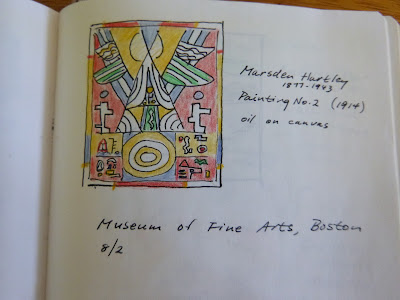I don't know about you, but whenever I run into the term, "Revolutionary War patriot," I waft through a few visions including Mel Gibson yelling, fighting, making a big fuss in the movie,
Patriot, which, in fact, I never saw. (Who needs more bloodshed!) Or, I envision our F. Fathers in their 18th century attire doing Their Thing to Make Things Right. Patriots, all. All, of course, done with fervor, for flag and country.
So, when I came upon a piece from that day
requiring every male to take an oath, I realized it had been less fervor and more livelihood. That or else leave the country, please. All this came up when I was working on my genealogy bit last year and found several antecedents with a little subscript note to the effect that they had "taken the oath."
That meant, at least in their state of Maryland, that all free males over 18 were required to go to the magistrate of their county by a certain date and take an oath renouncing the king of England and supporting the new revolutionary government. Or else. If they didn't, they would have to pay triple their annual taxes on real and personal property. They would be prohibited from practicing their trade or profession including medicine, pharmacy, law, education, church. They could not vote or hold any civil or military office. And then the magistrates had to submit the proper paper work or be fined 500 pounds. Hmmm ... why did I imagine the whole thing was more voluntary than that?
So one, then, became a patriot or remained a loyalist, royalist, or Tory and skedaddled off to Canada or returned to Albion unless he didn't care about his job or could afford to triple his tax rate. One family antecedent, finding himself in Boston in 1775, decided things were heating up so got himself north of the border where that branch of the family remains.



























